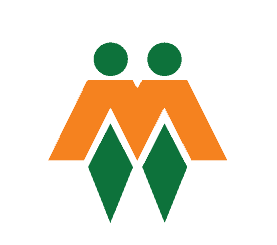AfriForum and TKAG protest at Shell SA head office
The civil rights organisation AfriForum and the environmental protection organisation Treasure Karoo Action Group (TKAG) today protested against Shell South Africa’s submissions for hydraulic fracturing in various parts of South Africa, specifically the Karoo. The group was met with silence from Shell and the SAPS were later called in to remove the peaceful protesters.
Anti-fracking posters, flyers and water bottles containing water contaminated by fracking chemicals were distributed to all Shell personnel at the oil company’s head office in Johannesburg.
“Today these organisations protested against this major international company’s pursuit of profit at the cost of our heritage, environment and precious water resources. I am saddened that Shell is not prepared to talk to us and accept our letter, which contains our fears and concerns relating to hydraulic fracturing. Yet they are eager to drill and pollute our water without a second thought,” says Marcus Pawson, Head of Environmental Affairs at AfriForum.
According to Jonathan Deal, CEO of TKAG, the letter was also directed to Rick Parry, the United States of America’s Secretary of State for Energy, who recently visited Cape Town and attempted to make a case in favour of mining shale gas in South Africa and fossil fuels in general in Africa.
“Perry is simply restating the hackneyed claims of the US oil and gas lobby. Much of the euphoria with which fossil fuels are viewed – especially in the US – is largely based on inaccurate estimates by the United States Geological Survey (USGS) and the US Energy Information Administration (EIA),” Deal continues.
The Eastern Cape High Court in Grahamstown recently ruled that government regulations for the fracking industry are unlawful. The country therefore has no legislation in place to regulate the many risks that these international companies will bring once they start with the fracking process. AfriForum and TKAG have also filed a court application with regard to fracking, which is due to be heard in the North Gauteng High Court in February 2018.
“The bottom line is that no licences or permits for any form of exploration or production can succeed without the appropriate regulations in place. Any activity in circumvention of this principle will simply attract urgent court applications. Shell South Africa and other international companies that have applied for licences or permits for the purpose of hydraulic fracturing will only further damage their international reputations by continuing with their fracking plans in South Africa and highlight their mala fide operations to the detriment of South Africans,” says Deal.
According to AfriForum and TKAG the economic viability of fracking in the Karoo and elsewhere in South Africa has dramatically decreased after the predicted gas reserves dropped to only 13 Tcf (trillion cubic feet) after initially being estimated at 485 Tcf.
One of the biggest lies attached to fracking in South Africa is that it will create more than 700 000 jobs. Recent local studies however confirmed that, at best, 3 500 jobs will be created, most of which will likely not be filled with South Africans from the semi- and unskilled labour sectors.
AfriForum and TKAG will in cooperation with other organisations continue to monitor Government and international companies in order to protect the rights of South Africans as well as the country’s environment.
Community members can support the AfriForum/TKAG alliance by sending an SMS with the word “Fracking” to 45354 (R1).


